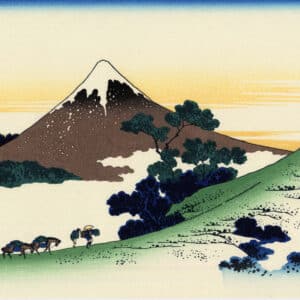Key Takeaways From This Article
➡ Foreign products sold in the Japanese market typically go through specialized distributors, importers, and agents. Finding the right one is key to selling your products in Japan.
➡ Your distributor gives you a local presence in Japan without the need to set up an office in Japan and hire Japanese employees. In addition to warehousing your products, your distributor will actively sell, support and market your products.
➡ Distributors handling non-Japanese products often don’t have much English on their websites but they usually speak English well and deal with foreign companies on a daily basis.
➡ Agents and manufacturers’ reps are rare in Japan except in a few industries.
➡ There are usually 20 to 50 distributors in a given industry or market.
➡ There are two types of distributors in Japan: those that deal with Japanese suppliers and those that deal mainly with foreign companies. Distributors that handle Japanese products aren’t typically set up to sell foreign products as well.
➡ Large Japanese retailers are rarely interested in dealing directly with foreign suppliers. The best way to sell to these retailers is through a distributor that’s already doing business with them.
➡ Most distributors selling foreign products operate nationally. Regional distributors are uncommon when it comes to non-Japanese products.
➡ Distributors are usually based either in the Tokyo metropolitan area or in Osaka although some may have local offices to be closer to their customers.
➡ Exclusivity is common in Japan, although you may need multiple distributors to address different markets or industries. Be sure to link exclusivity to sales and consider a clause in your distribution agreement that prevents the distributor from selling competing products.
➡ The best way to find potential distributors in Japan is to identify Japanese companies that are already importing and distributing complementary (not competing) products.
➡ Approaching your competitors’ distributors is rarely effective.
➡ Trying to put together a comprehensive list of potential distributors in Japan using search engines like Google is impossible.
➡ Evaluate potential distributors by looking at their product portfolio and who they are selling these products to. The size of the company is less important, but you want a distributor that isn’t too small or too big.
➡ The best distributors are the most selective and will need to be convinced on the merits of handling your products.
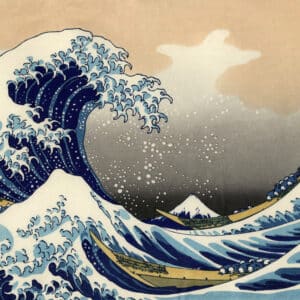
There’s a lot of confusing information out there about doing business in Japan.
🚫 Information from college professors and government bureaucrats who have no real-world experience
🚫 Information that’s outdated and often just plain wrong
🚫 Information that only works if you’re a large multinational corporation
You won’t find any of that here.
Instead, you’ll discover what actually works in Japan, based on 40 years of doing business in Japan and helping more than 400 companies sell their products in the Japanese market.
My goal is to clear up the confusion that surrounds the Japanese distribution system and show you how to find distributors, importers, agents, and other distribution partners in Japan for your products.
I’ll do this by answering the most common questions we’ve received over the years from thousands of companies interested in selling their products in Japan.
You may be wondering why this article focuses on distribution in Japan rather than other ways of entering the Japan market such as online channels like Amazon Japan and Rakuten.
It’s because, for most companies, selling your products through a Japanese distribution partner is the most effective way to reach buyers in Japan.
And to do this, first, you need to understand how distribution works in Japan for non-Japanese products.
And then, you need to find the right Japanese distributor, importer, or agent.
Due to language issues and the unique nature of the Japanese market, finding these partners can be especially challenging… even for the most experienced international sales professionals.
It’s why many companies end up with the wrong partner in Japan.
And why so many of those we talk with are unhappy with their current Japanese sales partner.
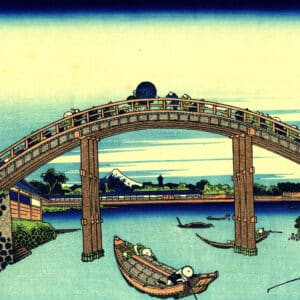
Doing Business In Japan: Frequently Asked Questions (FAQ) About Selling In Japan Using Distributors, Importers, and Agents
- How can I sell my products in Japan? I don’t speak a word of Japanese or know anything about doing business in Japan.
- How can a distributor help me sell my products in Japan?
- How much do distributors charge for these value-added services?
- Do distributors in Japan speak English? I’ve heard that language can be a problem when doing business in Japan.
- How many distributors are there in Japan?
- How many potential Japanese distributors are there for my products?
- How many distributors do I need in Japan? Is exclusivity common when doing business in the Japanese market?
- Are regional distributors needed to sell in Japan?
- We sell directly to retailers in other countries. Do I really need a distributor in Japan?
- How is distribution in Japan different from distribution in other countries?
- What’s an importer? Is it different from a distributor?
- What’s an agent? Is it different from a distributor?
- What’s a trading company? Is it different from a distributor?
- What’s the best way to find potential distributors in Japan?
- Should I approach my competitor’s distributors?
- Can I use trade shows to find potential Japanese distributors?
- Can I use trade or industry associations in Japan to find Japanese distributors?
- Why’s it so hard to find distributors in Japan using Google and other search engines?
- Can I use government services to help me find a distributor in Japan?
- Are there any online directories of Japanese distributors?
- What are some best practices for determining if a Japanese distributor is the right fit or not?
- How can I convince Japanese distributors to sell my products?
- We’re not happy with our current Japanese distributor. How can we replace them?
Don't see your questions on this list?
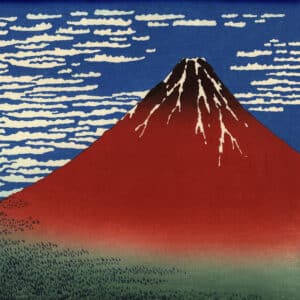
How can I sell my products in Japan? I don’t speak a word of Japanese or know anything about doing business in Japan.
Almost all foreign products sold in the Japanese market go through specialized distributors.
These companies handle importation, warehousing, shipping, sales, marketing, and local support for the companies they represent.
Distributors typically purchase your products at a discount and then resell them at a higher price to their customers.
When it comes to consumer products, these customers are usually retailers or wholesalers.
For B2B products, the distributor may sell directly to end-users or to another company such as a reseller or dealer.
Distributors will sometimes also sell directly to consumers (DTC) through their own website or on e-commerce platforms such as Amazon Japan or Rakuten.
How can a distributor help me sell my products in Japan?
A distributor gives you a local presence in Japan without the need to set up an office in Japan and hire Japanese employees.
They can help you sell your products in Japan by providing the following value-added services:
Logistical Support: They will clear your products through Japanese customs, store them in their warehouse in Japan, and then deliver them to the customer.
Sales & Marketing Support: They will use their relationships and knowledge of the Japanese market to promote and sell your products.
Customer & Technical Support: They will provide customer and technical support in Japanese. The ability to provide pre-sales and post-sales technical support is especially important for B2B products.
Regulatory Support: They will help you comply with the local rules and regulations necessary to legally sell your products in Japan. This is particularly important for products such as food, drugs, medical devices, and electronics.
How much do distributors charge for these value-added services?
Japanese distributors purchase products from you at a discount and then resell these products at a higher price to their customers. The difference between the two prices — their margin —covers the services listed above.
Do distributors in Japan speak English? I've heard that language can be a problem when doing business in Japan.
It’s true that many distributors do not have much English on their websites.
This is because they are focused on meeting the needs of their customers, and these customers are Japanese.
Our clients typically have no problems communicating or working with these companies because these distributors are accustomed to dealing with foreign suppliers and have staff who can speak English.
One common mistake when looking at potential partners, though, is focusing only on those distributors that do have English on their site.
In our experience, there is little relationship between an English language website and a distributor’s ability to effectively sell imported products.
More here: Do Japanese Distributors Speak English?
How many distributors are there in Japan?
There are thousands of these companies in Japan.
For example, we’ve helped over 400 companies connect with distributors in Japan, and through this, we have built up a database of over 21,000 Japanese distributors handling almost every type of consumer, B2B, medical, industrial, technical, and scientific products you can imagine.
But this database is by no means complete, and we are constantly adding new distributors to it.
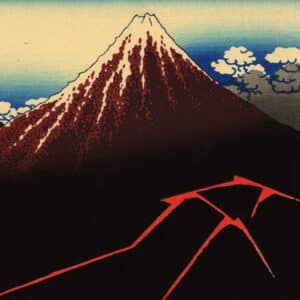
How many potential Japanese distributors are there for my products?
This will depend on what you are selling, of course, but we’ve found that there are usually 20 to 50 potential distributors in a given industry or market.
This number will probably be lower if you’re selling a niche industrial or B2B product that is only used in a few specific industries.
How many distributors do I need in Japan? Is exclusivity common when doing business in the Japanese market?
Distribution deals in Japan are usually exclusive when it comes to non-Japanese products.
This exclusivity allows the distributor to recoup the investment they will need to make to develop the market for your products.
Exclusivity also prevents the price erosion that can occur when you have multiple distributors selling to the same customers.
Exclusivity should always be linked to meeting mutually agreed annual sales targets, and there should be a clause in the distribution agreement preventing the distributor from selling competing products.
However, there are times when having more than one distributor makes sense.
The most common situation is when it would be difficult or impossible to reach multiple industries or markets using a single distributor.
Here are some examples from client engagements where multiple distributors made sense:
- A manufacturer of industrial products used in the automotive and aerospace industries
- A cosmetics company with a line of consumer skincare products and a line of professional products used in spas and salons
- An audio equipment manufacturer selling both consumer audio products and products used by recording engineers and other professionals
- A food company that supplies both retailers such as grocery stores and the HORECA (Hotel/Restaurant/Café) market
Are regional distributors needed to sell in Japan?
Japan is a geographically small country, so there is typically no need to have different distributors in different parts of the country.
Most distributors that handle imported products operate nationally and are located either in the Metropolitan Tokyo area or Osaka. The larger ones will often have sales offices in other parts of Japan in order to be closer to their customers. For example, companies doing business in the auto industry will usually have an office in Aichi Prefecture (Nagoya) where Toyota and its major suppliers do much of their production.
We sell directly to retailers in other countries. Do I really need a distributor in Japan?
In our experience, Japanese retailers are rarely interested in doing business directly with foreign companies, so you’ll need to work with a distributor who has existing relationships with the right retailers.
More here: Understanding Distribution In Japan: Selling Directly To Retailers
How is distribution in Japan different from distribution in other countries?
Here are four key differences.
First, agents and reps are uncommon in Japan.
Second, trying to sell non-Japanese products directly to retailers rarely works.
Third, distributors in Japan play a more active role in promoting the products they sell than distributors in other countries, who are often focused mainly on fulfillment and logistics.
In some industries, they would be referred to as Value-Added Distributors (VAD).
And finally, there are two types of distributors in Japan: distributors that represent Japanese manufacturers and distributors that handle mainly non-Japanese products.
There’s very little overlap between these two categories, so approaching distributors who are not currently selling non-Japanese products rarely makes sense.
More here: Japanese Distributors: The Wrong Ones & The Right Ones To Approach

What's an importer? Is it different from a distributor?
The terms “importers” and “distributors” refer to the same kind of companies.
In other words, Japanese companies who buy your products, bring them into Japan, and then resell them to their customers.
In this article, we’ll use the term “distributor” as a generic term for this kind of sales partner.
The term “importer” can also refer to specialized service providers who focus just on customs clearance and the actual importation of products into Japan.
Examples include third-party logistics (3PL) providers and companies who can act as your IOR (Importer of Record) when selling using Amazon Japan’s Fulfillment by Amazon (FBA) service.
What's an agent? Is it different from a distributor?
Agents, manufacturers’ representatives or reps, and brokers are all terms referring to individuals or companies who work on a commission basis.
This is fundamentally different from how distributors operate.
Distributors make money by purchasing products at one price and reselling these products to their customers at a higher price.
The difference between the purchase price and the sales price — their margin — allows them to provide the value-added services needed to sell non-Japanese products in the Japanese market.
Agents, on the other hand, focus entirely on selling and receive a commission on completed sales.
They have no warehousing capabilities and never take ownership of the goods.
When it comes to Japan, distributors are much more common than agents except in a few market sectors such as textiles, commodities, and certain types of large capital equipment.
In our experience, Japanese companies or individuals that act purely as agents or reps typically deal in a limited range of products and may only deal with a limited number of customers. They also usually lack the resources to engage in any significant amount of market development or to support the products.
What's a trading company? Is it different from a distributor.
The term “trading company” is used in Japan in several ways.
First, the term is often used to refer to the large Japanese sogo shosha (総合商社) that operate highly diversified global businesses. Companies like Mitsubishi, Mitsui, Itochu, Sumitomo, Marubeni, Toyota Tsusho, and Sojitz.
These companies themselves are rarely right for our clients, but they often have specialized subsidiaries which may be a better fit. For example, Itochu owns Coronet Corporation and Itochu Fashion System, which sell in the fashion apparel space, and Itochu Shokuhin and Leadoff Japan, which sell food and beverages (both alcoholic and non-alcoholic).
The term “trading company” is also used to refer to smaller, more specialized Japanese companies that handle non-branded foreign products such as commodities.
These companies generally differ from distributors in the following ways:
- They tend to specialize in relatively simple products such as foodstuffs and commodities that do not need much pre-sales or post-sales support. Some examples of products handled by these trading companies include grain, fish, lumber, and natural resources such as petroleum and minerals.
- They often lack warehousing capabilities.
- They usually act as agents or brokers, receiving a commission on sales that they arrange.
- They engage in little market development or proactive sales activities.
- They lack the ability to provide customer or technical support.
What's the best way to find potential distributors in Japan?
In our experience, the best way to find potential Japanese distributors is to identify Japanese companies that are already importing and distributing complementary foreign products.
Complementary products are products purchased by the same end-users who use your product. For example, if you sell baseball bats, complementary products would be cleats, gloves, balls, protective gear, tape, etc.
This is more effective than targeting distributors selling competing products because most Japanese distributors do not work with suppliers that compete directly with each other. (See the next question below for more on this.)
Also, it’s important to approach distributors that are already successfully distributing imported products. As mentioned already, foreign companies often make the mistake of reaching out to the large Japanese wholesalers or retailers in their industry. Unfortunately, these companies are rarely interested in dealing directly with foreign firms that do not already have an office in Japan.
More here: How To Find Distributors, Importers & Agents In Japan
Should I approach my competitor's distributors?
Clients sometimes ask us to reach out to the Japanese distributors who represent their direct competitors to try to convince these companies to switch to a different supplier whose products are better and/or cheaper.
This is rarely successful for two reasons:
First, Japanese distributors are loyal to their existing suppliers and are unlikely to “change horses in midstream” unless there has been a major breakdown in the relationship or the supplier is treating them poorly.
Second, as discussed above, distribution arrangements in Japan are usually exclusive and, in return for this exclusivity, most suppliers will put language into the distribution agreement that prohibits the distributor from selling competing products.
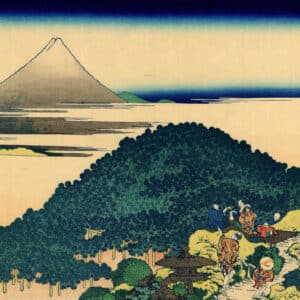
Can I use trade shows to find potential Japanese distributors?
Trade shows are popular in Japan, with the JETRO Online Trade Fair Database currently listing 372 trade fairs and exhibitions over the next year.
And these shows are very well attended.
For example, more than 76,000 people visited this year’s International Food and Beverage Show (Foodex)
So regardless of whether you sell consumer or B2B products, there’s probably a trade show in Japan for you.
You use Japanese trade shows in three ways to find potential distributors:
First, visit the show’s website to see who’s exhibiting at the show this year and who’s exhibited at the show in the past. Some of these exhibitors might be potential partners for you.
It’s important to note, though, that not all potential distributors for your products will be at a given show.
In fact, we know many very good distributors who rarely exhibit at trade shows at all. Instead, they use other methods to reach potential customers.
Second, you can visit the show in person to get a better understanding of the competitive landscape of your industry in Japan. And if a potential distributor has a booth at the show, there’s certainly nothing wrong with stopping by to introduce yourself and drop off your card.
But remember why they’re there and be respectful of their time.
The distributor has spent a lot of time and money to exhibit at the show, and they’re there to maximize their return on this investment.
In other words, their focus will be on selling their existing products, not on finding new products to sell.
Third, you can exhibit at a show in the hopes of selling your products and attracting the attention of potential distributors.
In our experience, you need to get really lucky to stumble upon the right partner at a trade show in Japan.
This is because most trade show attendees are companies with little interest in doing business directly with foreign suppliers such as retailers, wholesalers, and end-users of B2B products.
They may visit your booth…
They may love your products…
But unless you already have a distributor in Japan, they aren’t going to buy your products.
In fact, the question you’ll hear over and over again will be: “Who’s your distributor?”
A better approach is to identify potential distributors and reach out to them prior to the show and plan a trip to Japan that combines exhibiting at the show with face-to-face meetings with these companies.
We can help you connect with these companies. Click on the button below for more information.
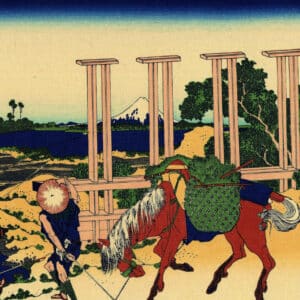
Can I use trade or industry associations in Japan to find Japanese distributors?
Like trade shows, there are hundreds of trade associations in Japan.
Most are industry-wide associations such as The Japan Food Machinery Manufacturers’ Association.
Distributors who belong to these industry associations will often be listed as supporting members (賛助会員) rather than regular members (正会員).
There are also associations of companies that import and distribute non-Japanese products such as the Japan Machine Tools Importers’ Association, the Japan Wine and Spirits Importers’ Association, and the Japan Watch Importers’ Association.
Note that even some of the best distributors are not members of these associations, so don’t rely only on association membership lists when trying to identify potential distributors.
Why’s it so hard to find distributors in Japan using Google and other search engines?
There are two main reasons why it’s almost impossible to put together a comprehensive list of potential Japanese distributors using your favorite search engine.
First, many of these companies don’t have much English on their websites, so they’re not indexed in English by Google and other search engines.
Second, they often don’t explicitly identify themselves as “distributors” on their website, so you have to take a close look at their site and read between the lines to figure out what they do and how they fit into the Japanese distribution system.
More here: How To Find Distributors In Japan
Can I use government services to help me find a distributor in Japan?
It really depends on what you are selling.
We have found that the distributor matching services provided by government agencies are rarely the right fit for companies selling highly technical B2B or niche products.
More here: Finding Japanese Distributors Using Government Services
Are there any online directories of Japanese distributors?
We’ve never found an online directory of Japanese companies that can be used to easily identify potential distribution partners.
In our experience, there is no “one-click” way to generate comprehensive lists of potential distributors, even using expensive Japanese-language databases such as Nikkei Telecom and Teikoku Databank.
When it comes to B2B products, portal sites such as iPROS, @engineer, and indexPro can be used to find some distributors, but these sites can only be searched in Japanese, and only a subset of distributors list their company and products on these sites.
What are some best practices for determining if a Japanese distributor is the right fit or not?
Evaluate potential distributors by looking at their product portfolio and who they are selling these products to.
The size of the company is less important, but you want a distributor that isn’t too small or too big.
If the company is too big or has too many products in their portfolio, your products are not going to get the attention they deserve. If too small, they will typically not have resources to properly promote or support your products.
This article provides some additional guidelines on how to evaluate potential Japanese distributors: How To Evaluate Japanese Distributors
How can I convince Japanese distributors to sell my products?
In our experience, the best distributors in Japan are also the most selective, so you will need to make a compelling case to them for taking on your products.
They are also busy, so do not expect them to spend a lot of time on your website trying to understand who you are, what you sell, and why they should do business with you.
Instead, you need to give the distributor everything they need to know when you approach them, focusing on the following:
➡ Your unique selling proposition (USP)
➡ Quality of your products
➡ Target market(s) for your product
➡ Success of your products in other markets
➡ How many distributors you have in other countries
➡ Training and support that you offer your distributors
➡ Indications that there is a market for your product in Japan
➡ How long your company has been in business
➡ The “back story” of your company or products
➡ How well your product complements the products that the distributor already sells
➡ Well-known customers (reference accounts) who use your products or retailers who stock them
More information on how to craft your approach to potential partners here: How To Convince Japanese Distributors To Sell Your Products
We're not happy with our current Japanese distributor. How can we replace them?
This situation is very common, and almost half of our engagements are for clients unhappy with their current Japanese distributor and looking for a change.
Here are a couple of things to consider.
“Why are you looking for a new distributor?”
When approaching potential partners in Japan on behalf of clients interested in changing distributors, the first question we’re always asked by everyone we approach is: “Why are they looking for a new distributor?”
The purpose of this question is two-fold:
First, the distributors want to know what the client’s expectations are so they can determine if they are the right fit.
Second, they want to make sure the client isn’t a “distributor-hopper”.
Like job-hoppers who frequently change jobs to get a bump in salary, distributor-hoppers are companies that change distributors every couple of years, hoping for slightly better sales.
Serial distributor-hoppers don’t do well in Japan where loyalty and a long-term approach to business are highly valued.
So, before approaching anyone, be sure that you have a good answer to this question.
When working with clients, we find that transparency is the way to go.
If you made a bad choice because Japan wasn’t a priority at the time and went with the first Japanese company that approached you, be honest and admit this to the distributor.
Also, if your distribution relationships in other countries are long lasting, be sure to highlight this when approaching potential partners.
People will talk
When you start approaching distributors, you should assume that your current distributor will hear about it through the grapevine, either from one of their customers or even from the company you’ve approached. This is especially true in some industries where it seems that everyone knows everyone else.
Ideally, you should let your current distributor know that you’ll be looking around before approaching other distributors, but this often does not make sense, especially if your current distributor is making some sales and you’re unsure whether there are even better options out there.
When working with clients in this situation, we sometimes ask distributors to sign an NDA before we reveal the name of the client.
This, unfortunately, is often not the ideal solution as some distributors will refuse to sign without knowing more about the opportunity.
Most distributors are quite knowledgeable about their industry so this can often be very hard to do without giving them strong clues as to who the client is.
There are many other nuances to switching distributors in Japan, so feel free to contact us if you would like more specific advice in this area.
Didn't find the answers you were looking for?
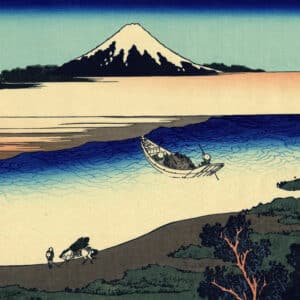
We Can Connect You With Distributors, Importers or Agents In Japan
We’ve connected 400+ companies with the right importers, agents & distributors in Japan using our proven 4-step FAST Formula™.
Companies selling everything from highly specialized B2B, medical, industrial, technical, and scientific products… to all types of consumer goods. Click here to see our track record
So if your products are right for the Japanese market, there’s a very good chance we can help you connect with Japanese sales partners who speak English… know your industry… and have a strong track record of selling products like yours.
Click on the button below to learn more.
